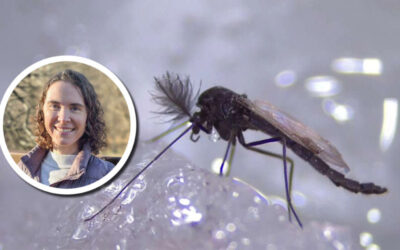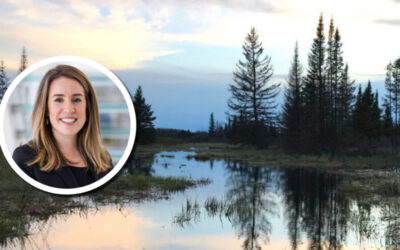Wetland Coffee Break
The Wetland Coffee Break series helps keep our community of wetland lovers connected and learning about wetlands throughout the year, from anywhere! Bring your coffee and learn about wetlands, the plants and animals that call them home, and the many natural benefits they provide to our communities. Sessions are held on Zoom and feature time for audience Q&A.
See below for a list of upcoming presentations and to register. Once you register, you’ll receive an automatic email including the URL link and password you’ll need to access the meeting. We record and post each presentation so you can watch any that you missed live. You’ll find links to these recordings below, and you can also find them on our Facebook page.
We are grateful to all of the presenters for sharing their knowledge and expertise and to everyone interested in learning more about wetlands! If you are interested in giving a Wetland Coffee Break presentation, or if you have a wetland topic you’d like to see covered, please contact Katie.Beilfuss@wisconsinwetlands.org.
We are now able to provide attendance verification to Wetland Coffee Break audience members who attend the live sessions and request this service. We created this mechanism in response to requests from members of the Wetland Coffee Break audience who would like to apply their Wetland Coffee Break learning to their continuing education or certification requirements. Learn more about how to receive attendance verification here.

Register for a Wetland Coffee Break
Carnivorous plants of the Northwoods
Emily Stone, Naturalist & Education Director, Cable Natural History Museum
Friday, March 13, 2026
10:30 am CT
Description
In some low-nutrient wetlands, plants reverse the food chain and become carnivorous to meet their needs. Discover the beauty and the impressive adaptations of these charismatic Northwoods residents with naturalist Emily Stone.
Emily Stone is a naturalist by birth, training, profession, and passion. After earning a Field Naturalist master’s degree from the University of Vermont with a wetland-focused project, Emily became the Naturalist/Education Director at the Cable Natural History Museum in Cable, Wisconsin. Emily writes a weekly “Natural Connections” column published in more than 20 local and regional newspapers. Her third Natural Connections book was published in November 2025.
Common Carex of wet open ground
Aaron Feggestad, Stantec
Friday, March 27, 2026
10:30 am CT
Description
Genus Carex, the true sedges, form a fascinating and diverse group of plants. An evolutionary success story, Carex is the most species-rich genus in Wisconsin with over 150 species. This introductory talk will focus on field identification characteristics of widely ranging Carex species of wet open ground (wet prairie, sedge meadows, fen, marsh). The content will focus on subgenus Carex and will be useful for anyone looking to build upon their knowledge of common species.
Aaron Feggestad has been a practicing wetland professional for the past 20+ years, primarily working in Wisconsin and the Great Lakes Region as a consulting ecologist, volunteer, and educator. Fascinated by the role of Carex in natural area function, and the importance of Carex in the restoration of many types of natural communities, he is working towards a goal of cataloging nearly all the 158 species that occur within the state.
Watch previous presentations
Click “Older Entries” below to see more past presentations, or view our Google Sheet index of past presentations here.
Wetland Coffee Break: Bugs Below Zero: The secret lives of winter active insects
Some aquatic insects, including certain stoneflies, mayflies, caddisflies, and non-biting midges, complete their life cycles and emerge from water bodies as active adults only during the winter season.
Wetland Coffee Break: Wisconsin’s peatlands: Carbon powerhouses for climate action
Restoration of degraded peatlands in Wisconsin could cut 2.3 million metric tons of CO₂ annually—roughly equal to removing 500,000 cars from the road—while safeguarding biodiversity, filtering water, and protecting communities from floods and fire.
Wetland Coffee Break: The importance of state agency collaborations for effective wetland conservation
While our legislative work may have the highest profile, in recent years we have also invested heavily to build collaborations that help state and local agencies integrate wetland priorities into existing programs.
Wetland Coffee Break: Dark waters, silent wings: Secrets Wisconsin bats keep
Get to know the eight bat species found in Wisconsin, where and when you might encounter them, how you can keep tabs on them, and how mysterious they remain. Conservation biologist Jennifer Redell will also provide a brief overview of White-nose syndrome and the...
Wetland Coffee Break: Introduction to wetland sedges (Carex)
This introductory talk focuses on basic Carex ecology, morphology, and common terminology, and will be useful for anyone looking to expand their understanding and use of identification guides and keys.
Wetland Coffee Break: Wetland Insects
Entomologist Ann Marsh will explore the process of collecting, storing, and cataloging insect specimens, and examine the types of insects that inhabit wetlands in Wisconsin and discuss their unique life cycles.






